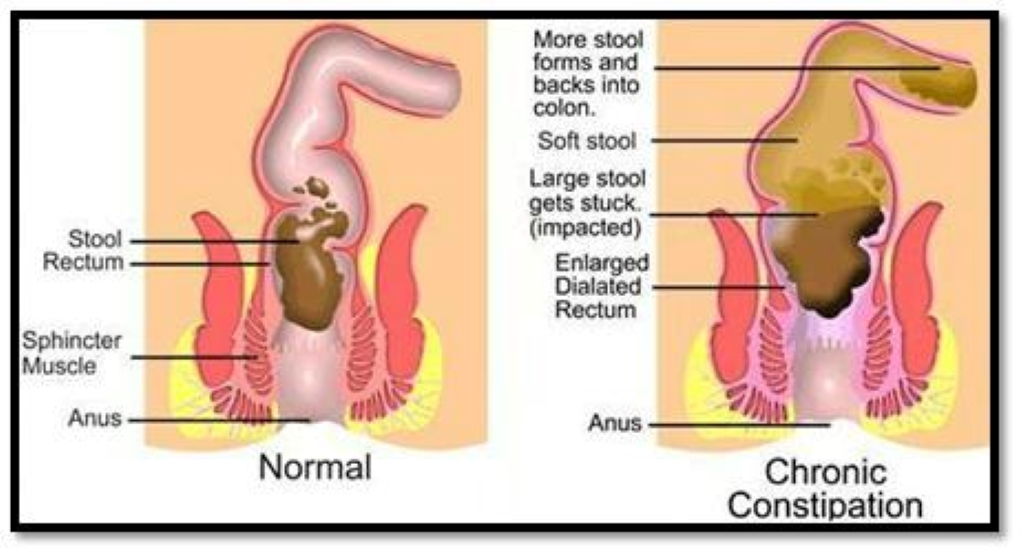Constipation Awareness Month is a crucial initiative that sheds light on a prevalent yet often overlooked health issue. The importance of such campaigns lies in the following aspects:
Education and Awareness: Many individuals may not fully understand what constipation is, its causes, or the potential complications associated with it. Awareness campaigns help educate the public about the condition, its symptoms, and the importance of seeking medical advice.
Preventive Measures: Constipation can often be prevented or managed through lifestyle changes, dietary adjustments, and proper hydration. The awareness month serves as a platform to share information about these preventive measures, empowering individuals to take proactive steps in maintaining their gastrointestinal health.
Early Detection and Intervention: Timely detection of constipation is crucial to prevent the development of more severe complications.
Reducing Stigma: Gastrointestinal issues, including constipation, can be associated with social stigma. By openly discussing these health concerns during Constipation Awareness Month, the goal is to reduce the stigma
Tailored Approaches for Different Populations: The awareness month recognizes that constipation affects diverse populations, including children, adults, and the elderly. Tailoring educational materials and campaigns to address the specific needs of these groups ensures a more effective dissemination of information.
In conclusion, Constipation Awareness Month plays a pivotal role in educating, empowering, and fostering collaboration to address constipation as a global health concern. By raising awareness, this initiative aims to improve the overall well-being of individuals and communities, encouraging proactive measures for better gastrointestinal health.
Constipation Complications
Long term constipation can lead to complications such as:
- Abdominal discomfort or cramps
- Poor quality of life
- Haemorrhoids
- Anal fissures
- Damage to the pelvic floor
- Faecal incontinence
- Urinary retention
- Stercoral perforation
- Rectal prolapse
- Anal fistula
Ayurveda believes in the doshik theory of disease. The balanced state of these doshas is health and imbalanced state of the doshas is called disease. This imbalance is usually because of the vitiation of a particular dosha single or in combination of others. The causes of the imbalance of dosha have been described under ‘Nidan’ or ‘Hetu’.
Vyakhya:
The meaning rokana, thehrana, stambha and stabdhata are related with
malavstambha. In Ayurvedic literature Avastambha means Dharan. This avastambha is Marathi version meaning avarodha. Malavstambha means there is change in natural evacuation of stool i.e. irregular evacuation of hard stool.

ABOUT MALAVSTAMBHA
Synonyms of Malavshtambha
Vibhandha, malavrodha, Vitgraha, Kabja,
Anaha, Koshtabadhata.
Hetu: Vishamashan, adhyashan, langhan, guru, ruksha, vistambhi, picchil, fermented food, Night works, sleeping in daytime, ati-vyayam, ati-maithuan, vega-vidharan mansik chinta vyagrata, agnimandya, ati-sheet padartha sevan etc.
Constipation is indeed a prevalent issue, and while home remedies and herbal solutions can offer relief in some cases, it’s crucial to recognize the importance of a thorough examination and proper treatment. Here are a few reasons why addressing constipation at its root cause is essential:
Underlying Health Conditions: Constipation can be a symptom of various underlying health conditions, such as gastrointestinal disorders, hormonal imbalances, or neurological issues. Identifying and treating the root cause is crucial for overall health.
Prevention of Complications: Chronic constipation, if left untreated, can lead to complications such as hemorrhoids, anal fissures, or more severe gastrointestinal problems. Treating the root cause helps prevent these complications.
Holistic Approach: Ayurveda, with its holistic approach, emphasizes the balance of mind, body, and spirit. Addressing constipation through Ayurvedic principles involves understanding individual constitutions (doshas), lifestyle, and dietary factors, providing a more comprehensive and personalized treatment.
Lifestyle Modifications: Identifying the root cause often involves looking at lifestyle factors such as diet, physical activity, and stress levels. Making appropriate lifestyle modifications can have a long-term impact on digestive health.
Long-Term Relief: While quick remedies may provide temporary relief, a more in-depth approach to treating constipation from its roots aims for long-term relief and sustainable improvements in digestive function.
Individualized Treatment: Ayurveda recognizes the uniqueness of each individual and tailors treatments accordingly. Understanding one’s prakriti (individual constitution) and vikriti (current imbalances) allows for personalized treatment plans that address the root cause of constipation.
While herbal remedies can offer valuable benefits, prolonged and indiscriminate use without proper supervision can lead to adverse effects and complications. Here are some key considerations:
Side Effects and Interactions: Even though Ayurveda remedies are considered natural, they can have side effects, interact with medications, or cause adverse reactions. It’s essential to be aware of these potential effects, especially when using them for an extended period.
Individual Variability: People can react differently to Ayurveda medicines based on their constitution, existing health conditions, and other medications they may be taking. An approach that works well for one person may not be suitable for another.
Dosage and Duration: The correct dosage and duration of herbal remedies are crucial. Prolonged use or excessive dosage can lead to complications, including issues like dryness of the gut, resistance to medications, laxity of intestines, or even more severe problems like obstruction or perforation.




